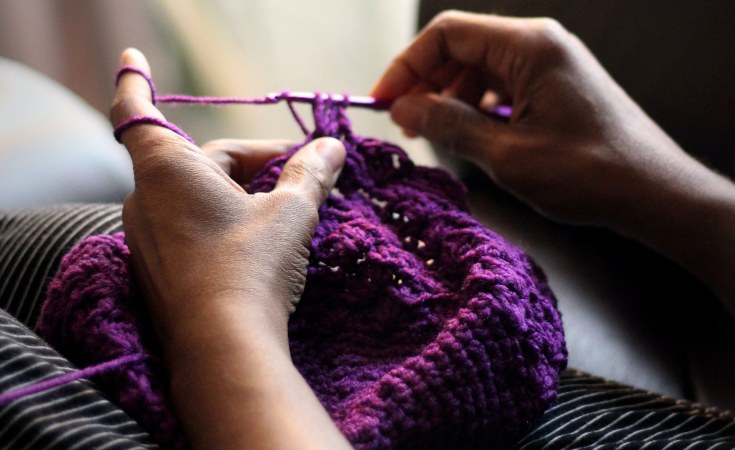Social isolation and loneliness are increasingly becoming societal problems, as they contribute to polarization and affect our physical health. Mental health professionals, community advocates and health-care providers have been raising the alarm about this impending crisis.
The pandemic may have exacerbated social isolation and the subsequent feelings of loneliness, but it did not invent it. In 2018, two years before the pandemic, the United Kingdom created a ministerial portfolio for loneliness. Japan, where nearly 40 per cent of the population report experiencing loneliness, began a similar position in 2021.
In this episode of The Conversation Weekly podcast, we speak to three researchers who invite us to more deeply consider loneliness and social isolation, and their impacts on our health and society.
Ananya Chakravarti is an associate professor of history at Georgetown University in Washington in the U.S. As a historian of emotions, Chakravarti has studied expressions of loneliness in Indian devotional poetry.
"If you read the poetry, it's often expressing a deep and acute pain. Of course, it's within that sense of being separated from the beloved that the world opens up spiritually for the devotee. So it's an interesting kind of experience, in that sense of torment caused through separation."
In studying the history of loneliness, Chakravarti has found as opposed to the loneliness of choosing solitude for religious or creative purposes, today's loneliness is a product of our modern lives.
"We seem to live in this highly globalized world," she points out, and "there's so many more ways to be connected. Travel is so much easier. You have social media. And yet, actual experiences of loneliness are probably very much on the rise if you look at the cultural production around loneliness as a very modern phenomenon."
It's this modern loneliness that is having a significant impact on our health.
Julianne Holt-Lunstad, a professor of psychology and neuroscience at Brigham Young University in the U.S., has studied the impacts of loneliness on people's health.
"Being alone can activate these kinds of responses in our brain -- and ultimately our bodies -- that are associated with the threat response. And so we're more hyper-vigilant to threats in our environment, as well as having to, in essence, handle every challenge in our life on our own. Our brains have to be more active, and this requires more metabolic resources."
This stress response triggers an inflammatory response which, over time, can contribute to conditions including cardiovascular disease and cognitive health.
Read more: Social isolation linked to higher levels of inflammation - new study
Social isolation is the absence of meaningful social connections, and so addressing its effects is not as simple as being around others. It requires building relationships of trust, belonging and support.
The World Health Organization has identified social isolation as a social determinant of health, finding its impact to be "comparable to that of other well-established risk factors such as smoking, obesity, and physical inactivity," especially for the elderly.
Kate Mulligan, an assistant professor at the Dalla Lana School of Public Health in Canada, advocates for a health-care approach called social prescribing to address the health effects of loneliness.
"Social prescribing is a way to use health care visits to reconnect people with nonclinical supports, community supports, that improve their health and well-being," she explains.
While it is a new approach, it's firmly rooted in evidence that connecting people to others can help address some of their health-care needs.
"Harm reduction communities have led by example and shown that peer workers create that welcoming environment in a way that is meaningful for people who use drugs."
But the impacts of loneliness are not just physical. Loneliness can create a feedback loop that increases polarization within society.
Holt-Lunstad points out that "there's vulnerability in terms of others that are not trusted. And so it may be considered very natural to want to have alliances and allegiances to your own group and to distrust other groups. And this unfortunately has led to a very common us-versus-them mentality, where people are isolating themselves within their groups of like-minded people."
And while loneliness is experienced on an individual level, it is caused by much larger structural problems. As Chakravarti points out, "if we don't address it or think about this as a social problem, as a social challenge as opposed to an individual affliction, we're going to not be able to address it."
Listen to the full episode of The Conversation Weekly to find out more.
This episode of The Conversation Weekly was produced and written by Nehal El-Hadi and Mend Mariwany, who is also the show's executive producer. Sound design is by Eloise Stevens, and our theme music is by Neeta Sarl. Music used in this episodes includes Duduk Music by Buddha's Lounge.
You can find us on Twitter @TC_Audio, on Instagram at @theconversationdotcom or via email. You can also sign up to The Conversation's free emails here. A transcript of this episode will be available soon.
Listen to The Conversation Weekly via any of the apps listed above, download it directly via our RSS feed, or find out how else to listen here.
Nehal El-Hadi, Science + Technology Editor & Co-Host of The Conversation Weekly Podcast, The Conversation
Daniel Merino, Associate Science Editor & Co-Host of The Conversation Weekly Podcast, The Conversation


